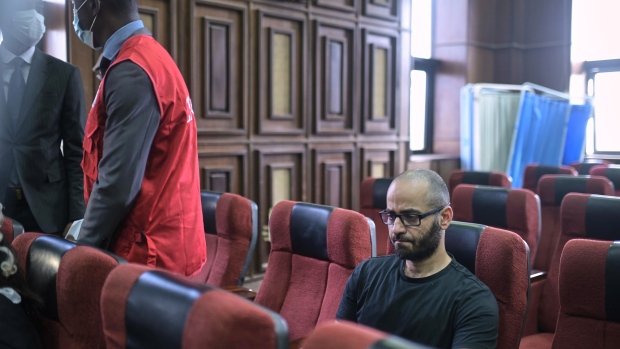May 8, 2024
Nigeria Rejects Bribery Claim Made by Binance as Dispute Festers
, Bloomberg News

(Bloomberg) -- Nigeria rejected an allegation of bribery leveled against it by Binance Holdings Ltd, calling it a tactic to divert attention away from the activities of the world’s largest cryptocurrency exchange.
The statement on Wednesday followed a blog post by Binance Chief Executive Officer Richard Teng that said it had been approached to make a “secret” payment to resolve issues in the West African nation, where one of its employees has since been jailed.
“Teng made false allegations of bribery against unidentified Nigerian government officials who he claimed demanded $150 million in cryptocurrency payments to resolve the ongoing criminal investigation against the company,” the Ministry of Information spokesman Rabiu Ibrahim said. “This claim by Binance CEO lacks any iota of substance. It is nothing but a diversionary tactic.”
A spokewoman for the cryptocurrency giant said that it stood behind the remarks in the blog.
Teng’s blog was the latest chapter in an increasingly sharp confrontation with Nigeria that’s already seen the crypto platform blocked and two Binance employees detained in the country.
One managed to escape while the other, Tigran Gambaryan, remains in custody on charges of tax evasion, currency speculation and money laundering. His trial is scheduled to begin this month.
Teng said in his blog that the company attended a meeting with Nigerian officials in Abuja, the capital, in early January at which it was confronted with criminal allegations.
He said Binance staff were approached by “unknown persons” for a payment to settle the allegations as they left the meeting. The company’s lawyer was subsequently “presented with a demand for a significant payment in cryptocurrency to be paid in secret within 48 hours to make these issues go away,” he wrote.
The Binance chief said that Gambaryan and his colleague, Nadeem Anjarwalla, returned to Nigeria in late February at the invitation of the authorities, after being assured of their safe passage. Notwithstanding those promises, they were quickly arrested.
“The phantom bribe claim is part of an orchestrated international campaign by this company that is facing criminal prosecution in many countries including the US, to undermine the Nigerian government,” Ibrahim said. “It will not clear its name in Nigeria by resorting to fictional claims and mudslinging media campaigns.”
On top of its problems in Nigeria, Binance founder Changpeng Zhao was ordered on April 30 to spend four months in prison in the US for failures that allowed cybercriminals and terrorist groups to freely trade on its platform. Binance in November agreed to pay $4.3 billion to resolve the US allegations.
Naira Woes
In Nigeria, the company had been under pressure for months as authorities focused on the role played by crypto in speculation against the naira, which has lost around 65% of its value against the dollar.
Part of the currency’s depreciation was deliberate as the government eased longstanding foreign exchange controls that had pegged it at an unsustainably strong level against the greenback. But the descent has been accompanied by sometimes wild volatility that’s hurt confidence and put crypto under scrutiny.
The Securities and Exchange Commission announced Tuesday it will ban person-to-person cryptocurrency trading in the naira. It also said new rules were coming for a sector that’s drawn strong interest from ordinary Nigerians seeking protection from local currency weakness.
(Updates with Binance comment in fourth paragraph.)
©2024 Bloomberg L.P.





